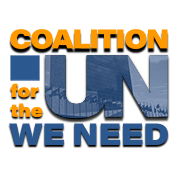While not presently advocating any specific measures, the UN2020 Initiative has identified some core principles and approaches for renewing the UN system. Among others, these include:
A Leading Role for the Secretary-General. An effective preparatory process leading to the UN2020 summit must support and build on the reforms initiated by Secretary-General Guterres, including through his review of the Secretariat’s peace and security architecture, his efforts to follow up on the UNGA’s 2016 resolution on the Quadrennial Comprehensive Policy Review of Operational Activities for Development, and associated management reforms.
Prevention and Sustaining Peace. In addition to management reforms, the Secretary-General has prioritised the need for conflict prevention and sustaining peace. Such an approach to peace and security — one that spans prevention, root causes, peacemaking, mediation, peacekeeping and post-conflict peacebuilding and reconstruction — will require substantial strengthening of heretofore under-utilized and under-funded parts of the UN system.
One UN. A more coherent and coordinated delivery of UN services at the country level has been a long-agreed goal. Member States would experience a more responsive and efficient system if the range of UN agencies, programmes and expertise were better aligned in support of country needs and demands. This could strengthen the impact of the UN system in delivery of critical areas of development, environment and humanitarian assistance, among others.
A people-centered UN. The United Nations needs to better incorporate the views of diverse stakeholders in its decision making processes, not only the positions of Member States’ executive branches. Women must be given more equitable representation. Marginalized groups, especially indigenous peopels, must be given a greater voice. The space for civil society contributions – under threat today in countries worldwide – must be expanded and refined. New forums for parliamentarians and other citizen representatives should be established. Mechanisms for ensuring accountability for upholding human rights commitments must be strengthened.
Regionalism. There is need for better integration of regional organizations within the United Nations system. Regions can and should be links between that system and individual national governments.
Adequate funding. The funding of the United Nations, including its various funds, programmes and agencies, relies primarily on combinations of assessed and voluntary contributions from member states. The contributions are assessed and allocated using an arcane and opaque set of rules that have generated much controversy, while failing to generate adequate funding for the UN’s work. To meet growing demands, a UN 2020 preparatory process must include a wide-ranging review and reform of the means and methods for more securely providing essential funding of the United Nations system. Numerous viable proposals already exist.
A continuing reform process. Progressive reform results from a process of dialogue and negotiation. Some reform measures will be more easily agreed upon by the time of the 2020 Summit than others. The 2020 Summit should not only include outcomes that lead to agreed reforms and the introduction of new norms, but also establish an expectation and a process for the realization of further reforms in the years that follow.
